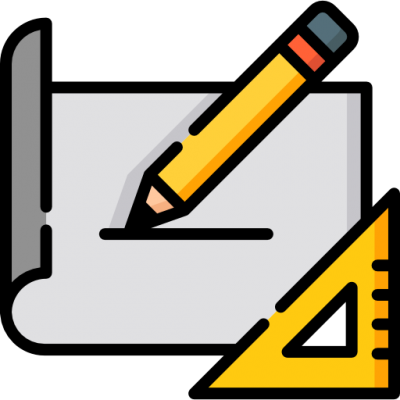No products in the cart.
Training menu
Practice Culture
A team that is not aligned to the values and vision of the organisation, will ultimately make up their own rules and way of operating. This will in the end be disruptive to the business. By having a team that is aligned to the vision and values of the practice, the leaders will be able to facilitate a set of ground rules and acceptable behaviours that everyone can adhere to.
It includes 3 sessions below for the entire practice:
1. Mission Statement - 20 mins
Understand how the Mission Statement of a practice can drive everything you do.
Purpose
Helping organisations to find a clear purpose where every team member is clearly aligned to their Mission Statement.
Pain point
The team doesn’t know the direction of the organisation and doesn’t understand what’s expected from each role.
Problem to be solved
Clearer alignment of the team and a better understanding of direction.
2. Practice Values and Personal Values - 60 mins
Understanding how the core values of the practice correspond with each team member’s individual values.
Purpose
Clarify the core values of the practice to see how each team members individual values fit with the organisation.
Pain point
Why do the individual team member’s values need to be aligned with the values of the practice?
Problem to be solved
Team members who feel aligned with the core values of the organisation and thus being more motivated to grow with the organisation.
3. Code of Cooperation - 20 mins
Understand how to create a code of cooperation with aligned and acceptable behaviours.
Purpose
Creating a set of ground rules for how the team work most effectively together. A set of rules that everyone where everyone has contributed to its existence.
Pain point
A lack of ground rules can create a chaotic workplace. Similarly if the ground rule have been set by the leader without any input from the team. Lack of alignment and ownership.
Problem to be solved
Creation of individual rules can create chaos for the team. A code of cooperation will help the team with ownership of behavioural ground rules.
Practice Systems
As the dental practice gets busy and has a team that isn’t always cohesive, the need for solid systems in the practice will help the team with consistency to create the best possible patient experience.
The following topics are designed for your entire practice and can be run individually.
Appointment Book Scheduling - 45 mins
Taking control of your appointment book can reduce stress, improve the patient experience and help your entire practice have an ideal day every day.
Purpose
By controlling your appointment book, you can take control of your stress levels, creating of an ideal day and reaching financial goals.
Pain point
A non-pre-blocked appointment book often leaves the practice with a sense of chaos. Patients are squeezed in to the book and the practice loses the control of how to run the practice in the most efficient way.
Problem to be solved
A chaotic day with lots of emergency patients, high stress levels and loss of control to reach financial goals.
Handling Cancellations - 45 mins
Dealing with latecomers and cancellations is one thing… but how can you PREVENT them from happening altogether?!
Purpose
Understanding each team members role in minimising disruptions to the day by having clear protocols for dealing with cancellations and late patients.
Pain point
Constant disruption to the planning of the day by patients cancelling their appointments or failing to attend.
Problem to be solved
Cancellations, late patients, patients failing to attend, disruptions to the day.
Handling Emergencies - 45 mins
Create an emergency patient policy that suits your practice in order to minimize disruptions to the ideal day and maximize patient care.
Purpose
By having clarity in protocols and procedures for how to deal with emergency patients, the practice will take control of the appointment book and only use emergency appointments for Relief of pain and give patients a Reason to Return.
Pain point
A team not aware of emergency patient protocol can create a chaotic day and patients trained to only come in when there is an emergency.
Problem to be solved
A practice that focuses more on preventive dentistry with clear communication protocols, helping the team to clarify these policies to the patients.
Meetings (huddle and team meetings) - 45 mins
Discover why the most successful dental practices use Huddles and Team Meetings to promote team cohesion, communication and engagement.
Purpose
Help teams to understand the need of communication systems to minimise misunderstandings and maximise alignment.
Pain point
When a practice is very busy the need for clear communication is even more important. If the team doesn’t meet to communicate, there is a high risk of things falling through the crack.
Problem to be solved
Practices with consistent meetings (daily huddles and weekly team meetings) seem to have a better understanding of what is happening in the business and can therefore be more empowered.
Feedback
The Art of Feedback – why is feedback so important and how do you create an environment of continuous improvement in your practice?
Positive and Constructive Feedback session is designed for your entire practice.
Positive and Constructive Feedback - 60 mins
Understanding the impact of positive and constructive feedback in a team environment both when giving and receiving feedback.
Purpose
To help teams creating a culture of positive and constructive feedback to enhance the expected behaviours and develop team members for the best possible patient experience.
Pain point
Team members who feel unsafe or don’t have the confidence in giving feedback, will create a practice culture that isn’t developing. Nor will the practice be able to learn from successes and mistakes.
Problem to be solved
Practical tools that will help the team to gain confidence in creating a culture of feedback in the practice.
Patient Communication for a Dynamic Dental Assistant
Dental Assistants are often an under-utilised work force. By understanding the role of the assistant more clearly, the DA’s can become an invaluable addition to the patient experience.
The following sessions are designed for DA with or without their clinicians. Three sessions can be run individually.
Communication Basics - 45 mins
Open communication skills for the DA.
Purpose
Assisting the clinician by having DA’s trained in the Primespeak tools and techniques.
Pain point
Sometime the dentist has to leave the treatment room and the DA feels insecure of what to talk to the patient about.
Problem to be solved
More confident DA’s who will find it easier to have a purposeful conversation with patient.
Primespeak Communication Tools to Support the Clinician - 45 mins
Using metaphors, Quality statements, Position statement.
Purpose
A more cohesive clinical team that understands how to child trust with their patients to help patients taking more ownership of the own oral health.
Pain point
DA’s can be an underutilised source of information and knowledge in the treatment room.
Problem to be solved
Empowering DA’s with Primesepak communication tools that will demonstrate to the patients that you are a cohesive clinical team.
DA Expanded Duties (Prebrief & Debrief) - 45 mins
Teaching DA’s how to do both a prebrief and a debrief to raise the profile of the DA and to give the patient an opportunity to ask questions without the filter of talking to an authority.
Purpose
Understand how to utilise DA’s smarter and increase motivation and engagement.
Pain point
Non-motivated dental assistants. Over-worked dentists who feel that they have to do EVERYTHING themselves.
Problem to be solved
Empowered DA’s with enhanced clinical skills, will give the patient an opportunity to ask questions about treatment options in a slightly different way.
Building a Self Managed Team
Every practice owner is hoping for an ideal team. Unfortunately they don’t exist unless the team members are developed to function in a psychologically safe environment. A non-mature team that hasn’t developed their emotional intelligence can become toxic and dysfunctional. The sections have a strong focus on the emotional intelligence of the team, something that will help them both understanding self and others.
The following topics are designed for your entire practice and can be run individually.
Group Problem Solving - 45 mins
Cause and effect analysis that helps a team getting to the bottom of the problem.
Purpose
Helping teams to solve problems by exhausting all possible caused to the issues before launching into solutions.
Pain point
In a rushed workplace, some decisions are sometimes not thought through enough and can therefor cause inefficiency as a result.
Problem to be solved
Clearly analysed causes to problems, discussed and analysed by the entire team and thus creating ownership of the final solution.
Group Decision Making - 60 mins
Understand how teams make decisions together with both problem solving skills and interpersonal skills.
Purpose
Understanding that there can be plenty of solutions to a problem. The teams collated knowledge is normally more powerful than the knowledge of individual team members.
Pain point
Lack of consensus in a team can create team members who aren’t aligned to decisions and can therefor work against the team instead of creating ownership.
Problem to be solved
Ownership and consensus in the team. Different ways of solving problems together. Do’s and don’ts of group decision making.
Negotiation Skills - 45 mins
Negotiating for the best outcome for both parts, an essential skill to master in a team managed practice.
Purpose
When teams are left to their own to come to the best possible solution, they often need the skills to negotiate.
Pain point
Lack of negotiation skills can cause strong and unnecessary emotions that stand in the way for the best possible outcome for both parts.
Problem to be solved
Ownership and consensus in the team. Different ways of solving problems together by negotiation. Creating win-win solutions without harming the relationship.
Creating Self Aware Teams
Team members who feel safe in communicating with each other to achieve best possible outcome for the practice. Building a strong team culture of open communication, team work, trust and a shared picture of what a successful team looks like.
The following topics are designed for your entire practice and can be run individually.
Interpersonal Effectiveness - 60 mins
Different behaviours in a team and how to effectively communicate for best possible outcome.
Purpose
Understanding self and others will help us to create purposeful teams. Self managed teams with a clear understanding of the strengths and weaknesses of different team members.
Pain point
Team members who don’t understand how to communicate with each other, and thus creating harm and misunderstandings.
Problem to be solved
A strategic plan of how to use the strengths of different team members, can help the organisation becoming more effective in its decision making processes.
Stress Management - 90 mins
Understanding stressors and how stress effects us at work. Practical strategies dealing with stress.
Purpose
Working in a dental practice can be extremely stressful. By understanding how to deal with stress and what causes it, we can become more effective in the way we work together and with our patients.
Pain point
Teams working in a dental practice under constant stress can lead to burnout and depression.
Problem to be solved
The training will help team members to understand the main cause of stress plus how to deal with stressors by either dealing with the situation or letting go.
Team Roles and Impact on Business Success - 45 mins
Understanding what roles we take on in a team and how the perception of these roles can change our behaviours.
Purpose
We all have a choice in determining how we see our own role in the practice. In this session you will learn how our choices will affect our behaviours and how we work together.
Pain point
Team members who see themselves as victims to the reality instead of taking charge and understanding the impact we all have on the success of the business.
Problem to be solved
Team members not perceiving their role as important. Perception of own role and how it affects the rest of the team. Taking control of own role in the business.
Working Across Generations - 60 mins
Practical strategies on how to work more effectively across generations.
Purpose
Learning how to work more effectively with both team members and patients of different generations.
Pain point
Not taking advantage of the strengths and capabilities that each generation has to offer. Elimination of misunderstandings and unnecessary disagreements.
Problem to be solved
Finding common ground and learning from each generation in order to create a more diverse and accepting work culture.
Cultural Intelligence - 60 mins
Understand what cultural filters we use when we communicate with patients or colleagues of different culture.
Purpose
Learning how to understand the filters we use when we deal with people of different cultures than our own. Learning how to communicate and work more effectively with people of other cultures than our own.
Pain point
Mis-communication and misunderstanding based on difference in geographical culture.
Problem to be solved
Finding smarter ways of working together by having a clearer understanding of why our biases stand in the way for our cultural awareness.
Business Acumen for the Team
The following topics are designed for your entire practice and can be run individually.
Business Planning for the Team - 90 mins
A four-step model for team business planning, based on the strengths of the practice.
Purpose
Involving and engaging the entire team to plan for the future by using strengths based methodology.
Pain point
Not having buy-in from the entire team for future business planning can cause mi-alignment of the team.
Problem to be solved
Team ownership and empowerment when planning for the future.
Act as a Patient. Think like a Business Owner - 60 mins
A model that helps the team to understand how each team member has a direct impact on the bottom-line success of the practice.
Purpose
Assist team members to understand the role they have in affecting the financial bottom line of the organisation.
Pain point
Team members who don’t understand the financial model of how to run a business successfully, won’t understand what they can do to increase revenue and to decrease costs.
Problem to be solved
Team members to take ownership of how to run the business by understanding the financial basics and thus thinking more like a business owner when making decisions.
Practice Numbers Meetings - 45 mins
Help the team to understand what numbers to share in a meeting to track the success of the business.
Exceptional Patient Experience
The Patient Experience (PX) is now the most competitive advantage that a dental practice can sit on. By learning how to create this consistent experience at each individual touch point and how each of the team members can contribute to this experience, the patients experience will be memorable enough for the patients to return and also refer friends and family to the practice.
The following topics are designed for your entire practice and can be run individually.
The Patient Experience. The Walk of the Patient - 120 mins
A virtual walk through the practice with focus on consistency at each touch point.
Purpose
The team to be consistent in systems and communication with patients in all different roles and touch points.
Pain point
Inconsistencies in systems, communication, treatment and the look/feel of the practice will ultimately raise anxiety levels of patient. A inconsistent experience for the patient that could end up in bad reviews and non-returning patients.
Problem to be solved
Inconsistencies.
Influencing Principles - 120 mins
Practical tips for each of Cialdini’s influencing principles for consistency. (Social proof – inviting referrals, Liking – quality statements, Authority – uniforms and certificates, Transference – first impression checklist)
Purpose
Based on the research of Robert Cialdini, the team will learn specific tools to be used for the patient experience.
Pain point
Leaving it up to individual team members how to create the best patient experience.
Problem to be solved
Consistent tools that everyone can use, to create to best possible patient experiences.
Virtual Visit: Infection Prevention and Control for your team
Infection Prevention requires a team managed approach for ultimate success. Virtual practice training can get the whole team on the same page with your policies and procedures ensuring compliance for the practice.
Our Virtual Visit training comprises 2 x 2 hour sessions with your entire team via video link.
The first session will briefly cover documentation including Standard and Transmission-Based Precautions. The focus then shifts to understanding Methods of Transmission followed by the implementation of PPE. We then move to Hand Hygiene and finish off with Aerosol Management and Respiratory Hygiene.
Session two starts with a virtual walk around of the sterilisation area in your practice to evaluate the reprocessing workflow and general knowledge of infection prevention and control. Once the walk around is completed, the session continues with focus moving to Surface Management, Instrument Management, cleaning protocols and sterilisation.
Learn more


 Coaching Solutions
Coaching Solutions


























